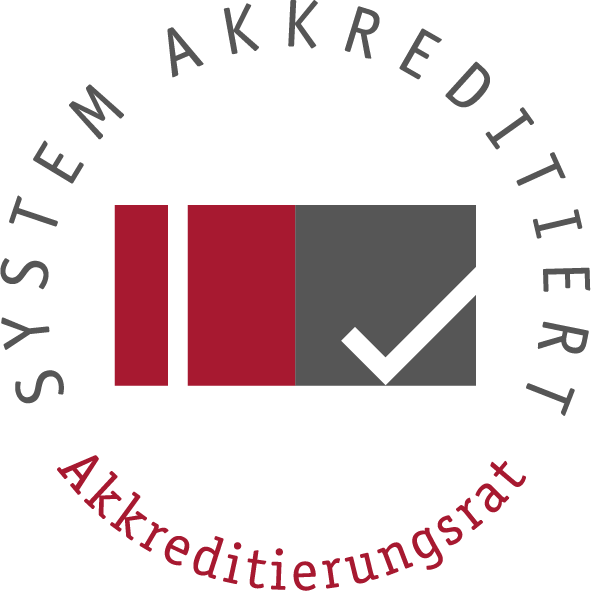Actuarial and Financial Mathematics (M.Sc.)

Studying for a degree in actuarial mathematics prepares students to work professionally in a field that traditionally employs large numbers of mathematicians.
The Master's degree programme 'Actuarial and Financial Mathematics' is aimed at students who already hold a Bachelor's degree in mathematics or a related subject and who are looking for a varied and challenging postgraduate programme that opens up excellent career prospects in the insurance and financial sectors.
The M.Sc. programme provides a solid education in the field of actuarial and financial mathematics, specifically teaching students the mathematical knowledge and skills required by members of the German Association of Actuaries (DAV). By offering students a wide range of mandatory elective modules and the opportunity to deepen their understanding in the fields of business science and computer science, students are able to focus on areas of interest that strengthen their individual academic profiles.
Students who complete the programme are able to model complex problems mathematically, analyse them in detail and develop computer-aided solutions. The knowledge and skills gained open up career paths in the insurance, financial and management consultancy sectors. For those graduates seeking even greater academic challenges, the Master's programme provides an excellent foundation for subsequent doctoral research work.
To graduate from the Master’s degree programme, students are required to earn a total of 120 credits as defined by the European Credit Transfer System (ECTS). Of these, at least 102 credits and at most 105 credits shall be from graded assignments. In the mandatory section of the programme, students must acquire at least 66 credits. As a rule, students are required to earn 30 credits per semester.
The M.Sc. programme is divided into the following blocks:
- Tools and Techniques of Financial and Actuarial Mathematics (19.5 credits)
- Stochastic Methods (13.5 credits)
- Lecture Courses (interdisciplinary) (27–30 credits)
- Seminars and Master's Thesis (42 credits)
- Freely selectable modules (15–18 credits)
To sharpen their personal academic profiles, students can select lecture courses in the fields of mathematics, business science and computer science according to their individual interests.
- A Bachelor’s degree from a German university or an equivalent qualification from a foreign university in mathematics or a related field. Applicants should be able to demonstrate a level of knowledge and competence that corresponds to that acquired in the Bachelor’s degree programme Actuarial and Financial Mathematics taught at Saarland University.
- Proof of advanced proficiency in English (typically level C1 of the Common European Framework of Reference for Languages)
- Evidence of the applicant’s particular interest in the subject can be provided in the form of a personal statement written by the applicant and two letters of recommendation written by referees who know the applicant academically.
Students have the opportunity to spend part of the programme studying abroad. Information on study abroad opportunities, exchange programmes, scholarships and administrative formalities is available from Saarland University's International Office or from the relevant departmental or subject representative. As foreign host universities and scholarship-awarding bodies often have early application deadlines and long application processing times, study abroad applications should normally be submitted to the Examinations Office one year before the planned start date.
Graduates from the programme are able to think analytically, independently propose solutions to complex problems of practical relevance and implement these solutions using computer-aided methodologies. They are thus well qualified to take up professional positions that require the deployment of advanced analytical and quantitative skills. Areas of employment include: the insurance industry, the financial sector, management consultancy work, IT companies and research institutions in the private and public sectors. Students who successfully complete the Master's programme are also well prepared to begin doctoral research work.
Students can begin this programme at the beginning of the winter or summer semester. Applications should normally be received by 15 May for students wishing to begin in the winter semester and by 15 November for students starting in the summer semester. Applicants who apply by May 15th for the following summer semester are expected to receive a letter of admission by mid-July if the respective Master's commission makes a positive decision. Applicants who apply by November 15th for the following winter semester are expected to receive a letter of admission by mid-February if the respective Master's commission makes a positive decision.
Information for prospective applicants can be found here:
www.uni-saarland.de/fakultaet-mi/bildhauer/studienkoordination/international/master-application.html
Although the bullet point "important information" is primarily intended for prospective mathematics students and, in particular, proficiency in "Measure Theory" and "Stochastics" is required for admission to the Master's degree programme AFM, the other bullet points also apply to prospective AFM students.
Applications must be submitted via the Faculty of Mathematics and Computer Science online application portal.
| Standard period of study | 4 semesters |
| Academic qualification | Master of Science (M.Sc.) |
| Languages of instruction | German and English |
| Required level of English: | Advanced (CEFR level: C1) |
| Restricted-entry programme | No |
| Application deadline for the winter semester | Early deadline: Nov 15 (positive decision: notification at the lastest in February of the following year) Late deadline: May 15 |
| Application deadline for the summer semester | Early deadline: May 15 (positive decision: notification at the lastest in July) Late deadline: Nov 15 |
| Tuition fees | None |
| Semester fee | See current fee structure |
Programme adviser
Christian Bender
Phone: +49 681 302-2435
bender(at)math.uni-sb.de
www.uni-saarland.de/fakultaet-mi/stochastik/bender
Henryk Zähle
Phone: +49 681 302-4383
zaehle(at)math.uni-sb.de
www.uni-saarland.de/fakultaet-mi/stochastik/zaehle
Central Student Advisory Service
Saarbrücken Campus
Building A4 4, Ground floor
Phone: +49 681 302-3513
studienberatung(at)uni-saarland.de
www.uni-saarland.de/studienberatung
Central Student Advisory Service
Saarbrücken Campus
Building A4 4, Ground floor
Phone: +49 681 302-3513
studienberatung(at)uni-saarland.de
Central Student Advisory Service

Accredited study programmes
Saarland University was one of the first universities in Germany to achieve Quality Assurance Accreditation and has held the Accreditation Council's official quality mark continuously since 2012.
Quality management
